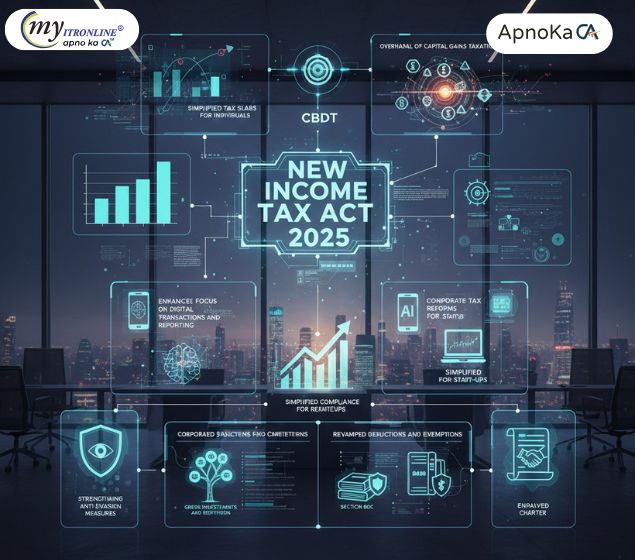# ai
12 posts in `ai` tag

Historic Diwali Gift for the Nation: Next-Gen GST Reform
This blog details the significant GST cuts introduced as a 'Diwali gift' for the nation. It highlights how these reforms aim to simplify the tax structure and ease financial burdens across various sectors including daily essentials, agriculture, healthcare, education, and certain electronic appliances and vehicles, ultimately fostering a self-reliant India. The article also touches upon process reforms and a positive message from the Prime Minister.

Indian Multiplexes Urge Government for GST Rationalisation on Tickets and F&B
Indian multiplex chains are lobbying the government for a reduction in GST on movie tickets and the allowance of input tax credit (ITC) on food and beverages. They argue these reforms are crucial for making cinema more affordable, boosting industry growth post-pandemic, and competing with OTT platforms. While the Multiplex Association of India proposes a new tiered GST structure, industry opinions vary on whether pricing or content quality is the ultimate driver for audience footfall.

New Income Tax Act 2025: Key Updates from the CBDT
The Central Board of Direct Taxes (CBDT) has announced a significant overhaul of the Income Tax Act, effective from assessment year 2025-26. This blog details the crucial changes, including simplified individual tax slabs, revised capital gains taxation, a stronger focus on digital transactions, corporate tax reforms, revamped deductions and exemptions, enhanced anti-evasion measures, and the introduction of a Taxpayer Charter. Understanding these updates is vital for both individuals and corporations to ensure compliance and optimize financial planning under the new regime.
.jpg)
A Gift That Keeps on Taxing? ITAT Delivers Key Ruling on Capital Gains Between Spouses
The Income Tax Appellate Tribunal (ITAT) has clarified that when an asset gifted to a spouse is sold, the resulting capital gains must be taxed in the hands of the gifting spouse, not the recipient. This blog breaks down the mandatory "clubbing of income" provision under Section 64(1)(iv) of the Income Tax Act, explaining its implications for taxpayers, the calculation of gains, and the importance of proper documentation.

CBDT Simplifies Tax Rules for IFSC Funds: A Major Win for Investors
This blog post breaks down the recent significant amendment made by the CBDT to Rule 21AIA of the Income Tax Rules. It details the removal of sub-rule (4), which previously imposed additional compliance burdens on "specified funds" like retail schemes and ETFs in the IFSC. The post explains how this change aligns tax laws with IFSCA regulations, effectively eliminating dual regulation. The primary impact is simplified compliance, reduced regulatory overlap, and a more attractive investment environment in India's IFSC, ultimately fostering growth in financial hubs like GIFT City.
.jpg)
Sold Property in FY 2024–25: Know Tax Rates & Exemptions under Sections 54, 54EC, 54F
A simplified guide for individuals who sold property in FY 2024-25, explaining the tax rates on short-term and long-term capital gains and detailing how to save tax by reinvesting under Sections 54, 54EC, and 54F of the Income Tax Act.
.jpg)
Navigating the Crypto Tax Minefield: A Detailed Guide for India's FY 2025-26
This blog provides a comprehensive guide to the taxation of Virtual Digital Assets (VDAs) and cryptocurrencies in India for the Financial Year 2025-26. It details the prevailing rules, including the flat 30% tax on all profits, the stringent policy of no loss set-off or carry forward, and the mandatory 1% TDS on transactions. The article also covers the tax implications for gifts, airdrops, and staking, along with the mandatory ITR filing requirements, to help Indian investors and traders navigate the tax landscape and ensure full compliance.
.jpg)
Lost Your Form 16? Don't Panic! Here's How to File Your ITR Successfully Without It.
This comprehensive guide addresses the common concern of a missing Form 16. It empowers salaried individuals to confidently file their Income Tax Return by detailing essential alternative documents (pay slips, Form 26AS, AIS) and providing a clear, step-by-step process for successful and compliant ITR filing, ensuring no one misses the deadline due to a lost document.
.jpg)
Set Off and Carry Forward of Losses: A Detailed Explanation
This blog provides a comprehensive explanation of the provisions for setting off and carrying forward losses under the Indian Income Tax Act. It details the process of adjusting financial losses against profits to reduce the overall tax burden. The article breaks down the two primary methods: intra-head and inter-head set-off, outlining the specific rules and restrictions for various types of losses, including business loss, capital loss, and loss from house property. It also covers the crucial conditions and timelines for carrying forward unadjusted losses to future years, making it an essential guide for taxpayers looking to optimize their tax planning for the Assessment Year 2025-26.
.jpg)
Tax Audit under 44AB: Revised 2025 Essentials
This guide explains the updated Guidance Note on Tax Audit under Section 44AB of the Income-tax Act, 1961, for the Assessment Year 2025-26 (Financial Year 2024-25). It clarifies who needs a tax audit, points out key changes in Form 3CD, including new clauses for digital transactions, MSME reporting, and buybacks. It also outlines the audit process, lists important due dates, and details the penalties for non-compliance. The guide offers best practices for taxpayers to help ensure smooth audits and strong tax compliance in India.
.jpg)
LTCG Tax: Recent Updates & 2025 Bill Clarifications
Recent changes to Long Term Capital Gains (LTCG) tax rates and rules, which take effect on July 23, 2024, have greatly affected how investors figure their tax liability for the Assessment Year 2025-26. This blog post outlines these important updates across different asset classes, including equity, debt, and real estate. It explains the details of indexation and clears up common misunderstandings, especially related to the Income Tax Bill, 2025. It highlights the need for careful tax planning and urges taxpayers to get expert help.
.jpg)
Big News for Property Sellers: IREDA Bonds Now Offer Up to 50 Lakh Tax Exemption on Capital Gains!
This blog post details how the Central Board of Direct Taxes (CBDT) has granted "54EC status" to IREDA bonds, offering property sellers a significant tax exemption of up to 50 lakh on long-term capital gains. It explains what 54EC bonds are, why IREDA's inclusion is beneficial for both investors and India's green energy goals, how the tax exemption works, key investment considerations like limits and lock-in periods, and who can invest. The post highlights the advantages of investing in these safe, fixed-return bonds while contributing to a sustainable future.
